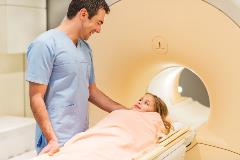New medical advice is recommending doctors avoid Computed
Tomography (CT) scans when evaluating

children and adolescents who present with their first seizure.
The advice is one of five recommendations released today by the Australia and New Zealand Child Neurology Society (ANZCNS), a specialty society of the Royal Australasian College of Physicians (RACP), as part of its Evolve initiative.
Discussing the recommendations, Professor Peter Procopis, Adjunct Professor in Paediatrics & Child Health and senior RACP Fellow, said it is important to reduce unnecessary neurological testing in children and adolescents.
“We now know children exposed to CT scans before the age of 20 face a higher risk of cancer in the years following exposure to radiation than we previously thought.
“This increased risk of cancer is very small, with one additional cancer for every 1,400-2,000 CT scans. However, it’s still important that we reduce instances where doctors may conduct this test if it isn’t necessary.
“We recommend against CT scans as an early test unless there are special circumstances, such as the need to explore intracranial abnormalities.
“Even in these cases, Magnetic Resonance Imaging (MRI) is generally preferred to CT scans as it poses no radiation risk and has superior resolution.”
Last year, more than 9,800 MBS-funded CT scans of the head were performed on children under the age of 15.
Before undertaking a CT scan in children who present with new onset seizures, ANZCNS recommends doctors use a combination of clinical examination, the patient’s clinical history and an electroencephalograph (EEG), if required.
An EEG, which does not expose a patient to radiation, measures the electrical activity of the brain and can be used to determine whether the condition warrants further examination.
RACP’s Evolve initiative identifies a specialty’s ‘Top Five’ clinical practices that may be overused, provide little or no medical benefit or cause unnecessary harm to patients.
Read the full list of
recommendations from the ANZCNS.
There are now 20 Evolve lists published, including ‘Top Five’ lists. For more information, visit:
evolve.
Evolve is a founding member of the Choosing Wisely campaigns in Australia and New Zealand and all Evolve recommendations are available through these campaigns. To help patients make informed decisions about their treatments, Choosing Wisely Australia has developed ‘
5 Questions to Ask your Doctor’.